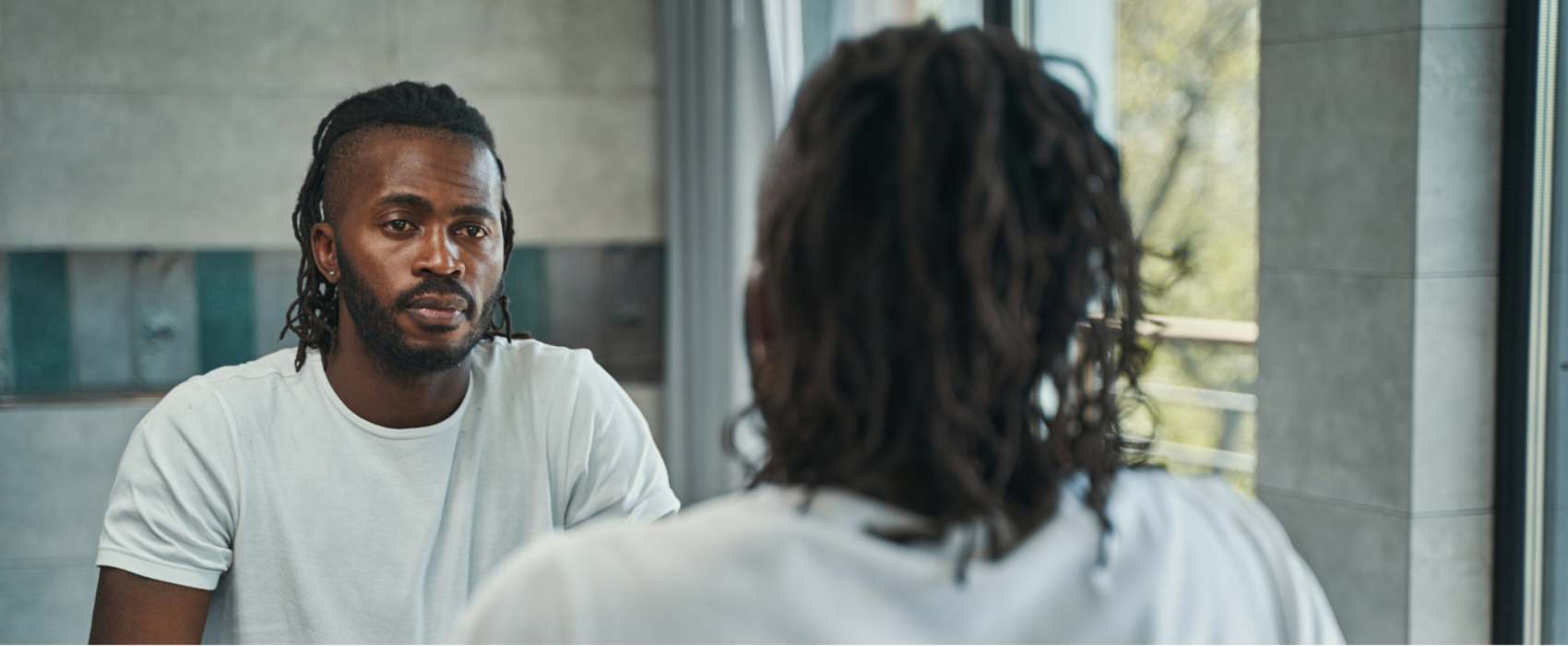Body image refers to how individuals perceive their physical selves – whether they see themselves as attractive, what they like or dislike about their appearance and how they believe others view them.
The Mental Health Foundation found that 30% of all adults have felt so stressed by body image and appearance that they felt overwhelmed or unable to cope. That’s almost 1 in every 3 people.
‘Body image’ is a term that can be used to describe how we think and feel about our bodies. Our thoughts and feelings about our bodies can impact us throughout our lives, affecting, more generally, the way we feel about ourselves and our mental health and wellbeing.
Having body image concerns is a relatively common experience and is not a mental health problem in and of itself; however, it can be a risk factor for mental health problems. Research has found that higher body dissatisfaction is associated with a poorer quality of life, psychological distress and the risk of unhealthy eating behaviours and eating disorders.
What can cause body image concerns?
The reasons why people experience feeling distressing emotions towards their body are complex, and everyone’s experience will be unique. Some things thought to cause negative body image include:
- Trauma and abuse.
- Limited or false media representation - the usage of editing and altering images on social media platforms and the media can portray an unrealistic and unachievable image to the public.
- Lack of diversity in education.
- Those around us - Hearing how friends and family refer to the way they look can influence how we feel about our own selves.
- Having a physical or mental long-term health condition might immediately exclude us from ever looking or behaving in a certain way that might contrast with desired ideals or normalities, impacting confidence and self-esteem.
Positive body image: what is it?
Positive body image is not simply the absence of negative body image. Those with a positive body image acknowledge that bodies are diverse and that beauty is subjective and multifaceted. It is characterised by a realistic and kind perception of one's size, shape and appearance, and the ability to recognise that personal worth is not determined by physical appearance.
Often someone with a positive body image will maintain a healthy relationship with food, exercise and their bodies, embracing self-care that promotes wellbeing rather than striving for a ‘perfect’ body. A positive body image supports overall mental health, as it encourages confidence, self-esteem and a resilient attitude towards external pressures and media-driven beauty standards.
Our top tips to help maintain a positive body image
- Take note of the social media accounts you follow and how they make you feel
Recognise unrealistic body images posted on social media. Follow groups or people with different ideas. Consider muting or unfollowing accounts that cause you to feel negatively about your body or appearance, or that encourage you to compare yourself unfavourably to others.
- Be mindful of unrealistic body ideals
Try not to pick up unrealistic ideas about what your body should look like. It may help to educate yourself on the average UK body sizes to bring some perspective, as there is a much broader range of body shapes and sizes than the limited range you might see online.
- Take breaks from social media
Being online for long periods means you can be mentally exhausted without even knowing about it. Whether you ‘follow’ influencers or friends online, taking a break from social media is always a good idea. Think about setting a limit on how long you’re online each day and have a go at a ‘No-social-media-Sunday’. Instead, use the time to go out and do something you enjoy- connect with nature and see friends in person.
- Build a positive feedback loop between you and your friends
Supporting each other and receiving positive comments from those we care about can affect us more than a ‘like’ or a comment from someone we barely know. Be honest in setting boundaries in your group so everyone knows what is positive for everyone to hear. Not only will you feel better, but your friends will too. It’s a win-win situation!
- Make sure you're safe when aiming for body changes
It’s easy to see dieting pills, steroids or cosmetic treatments as a quick way to achieve your goal. Before making any decisions about products, find out first if the product is safe, tested, and ethical.
- Make compliments based on personality and strengths rather than just looks
It’s easy when complimenting someone to focus on their appearance, such as ‘you look like you’ve lost weight' or ‘you look like you’ve gained some muscle’. There isn’t anything wrong with this but consider that if someone receives compliments about their image, they will apply a higher worth to how they look and feel more pressure to look a certain way. Switch it up and compliment someone’s skills or personality. Let them know that what you like about them is on the inside, not just the outside.
- Model positive behaviour
At home, parents and carers can lead by example by modelling positive behaviour around body image, eating healthily and staying active.
- Find the best way that works for you to stay active
A healthy amount of exercise every week can make us feel better about our bodies, encourage a good mood and decrease stress. But don’t overdo it – the best workout programmes are the ones you actually enjoy.
If your body image is a significant cause of stress, or if you’re being bullied about how your body looks, consider talking to a friend, a trusted adult or a health professional.
It’s especially important to do this if you’re feeling any pressure to make drastic decisions – for instance, having cosmetic surgery, starting extreme dieting or trying drugs and supplements – or if you are having thoughts of harming yourself.

